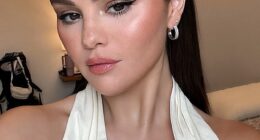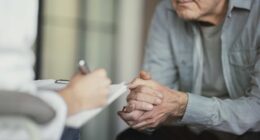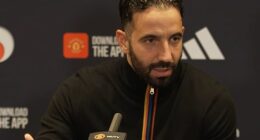Breast cancer is a journey that millions face each year, fraught with fear, uncertainty, and physical challenges. However, stories of survival offer powerful insight and hope, showing that resilience can shine even in the darkest moments. In this article, five well-known women—Hoda Kotb, Danielle Fishel, Sandra Lee, Christina Applegate, and Kathy Bates – share their personal battles with breast cancer, shedding light on symptoms, stages, and the path to recovery.

What Are the Worst Symptoms Experienced in Breast Cancer?
Breast cancer symptoms vary widely among individuals, but many survivors report some of the most distressing experiences during diagnosis and treatment. Key symptoms include:
- Pain and tenderness in the breast or underarm: Often, this is one of the first signs reported, especially in later stages when the cancer begins affecting nerves.
- Lumps or thickening in breast tissue: A common early warning sign, this symptom often prompts women to seek medical advice.
- Changes in breast size, shape, or skin texture: Dimpling, redness, or puckering can signal more advanced disease.
- Nipple discharge or inversion: Shifts in the nipple’s appearance can be subtle but important.
- Fatigue and malaise during treatment: Though not a direct symptom of cancer itself, the side effects of therapies profoundly affect quality of life.
For example, Hoda Kotb shared that her initial discomfort was mistaken for benign issues, but persistent pain led to diagnosis. Christina Applegate described intense tenderness that affected sleep and daily activities. Sandra Lee, renowned for candid discussions about her condition, emphasized the psychological impact that symptoms like swelling and soreness had on her well-being.
The Stories of 5 Brave Survivors: Lessons from the Frontline
The resilience of Hoda Kotb, Danielle Fishel, Sandra Lee, Christina Applegate, and Kathy Bates offers more than inspiration; it provides practical perspectives on living with and beyond breast cancer:
1. Hoda Kotb: Empowerment Through Survival
Hoda Kotb’s breast cancer journey began in 2007 when she underwent a mastectomy followed by reconstructive surgery to remove a cancerous lump. Today, 18 years later, she is cancer-free and dedicated to being a voice for women facing similar challenges.
Reflecting on her experience, Kotb said, “It’s part of me, but not all of me.” She shared an empowering perspective: “If you survive breast cancer, it could be the best thing that happened to you because suddenly you are empowered; because you have strength now; because you realize that your life has margins—it’s to be valued and not wasted.” This powerful message transforms the narrative of cancer from fear to existential strength.
Since her diagnosis, Kotb has continued a remarkable life journey. She became a mother, rose to become a co-host on the Today show, authored several books, and though now retired, remains actively connected with her audience on social media. Her story exemplifies how breast cancer survivors can reclaim control over their lives and inspire millions by sharing their truths.
Also Read | Kathy Bates on Life After Cancer: Why She Embraces Not Reconstructing
2. Early Detection Saves Lives: Danielle Fishel’s Personal Reminder
In 2024, Danielle Fishel openly shared her breast cancer diagnosis on her podcast Pod Meets World, dedicated to her iconic series Boy Meets World. At 44, she revealed the cancer was caught incredibly early—as stage 0, technically high-grade DCIS with microinvasion. Fishel explained, “It is very early… I was diagnosed with high-grade DCIS with micro invasion and I’m going to be fine. I’m having surgery to remove it.”
Her story highlights the critical role of regular screenings and timely medical appointments. She candidly admitted how easy it can be to postpone or skip mammograms due to busy schedules but stressed that commitment to health made all the difference. “The only reason I caught this cancer when it is still stage 0 is because the day I got my text message that my yearly mammogram had come up, I made the appointment,” Fishel said.
She urged women everywhere to prioritize early screening:
-
If it’s time for your mammogram, don’t delay.
-
Even if you feel fine, schedule your checkup.
-
Early detection can mean the difference between simpler treatment and more aggressive interventions.
Her experience serves as a powerful example that breast cancer detected in its earliest stage often leads to excellent outcomes with less pain and fewer side effects.
3. Sandra Lee: Turning Diagnosis Into Advocacy and Awareness
Sandra Lee, celebrated chef, author, and former First Lady of New York, revealed her breast cancer diagnosis publicly in 2015, when she was found to have ductal carcinoma in situ (DCIS). She underwent a lumpectomy followed by a double mastectomy to manage the disease.
Lee has been candid about her journey, stating, “For me to withhold my breast cancer diagnosis would have been disingenuous.” She values the close bond she shares with her followers, emphasizing the responsibility she feels as a friend, advocate, and activist for breast cancer awareness.
Now 59 and cancer-free, Lee continues to inspire through her work not only in the culinary world but also as a social media influencer. Her repeated appearances on the cover of Woman’s World underscore her commitment to sharing her story and educating others. Her openness reminds women that transparency and advocacy can transform personal challenges into powerful movements for awareness and early detection.
4. Christina Applegate: Speaking Truth to the Emotional Challenges of Breast Cancer
In 2008, at just 36 years old, Christina Applegate faced breast cancer and opted for a double mastectomy to remove a cancerous lump. Since then, she has remained cancer-free and actively uses her platform to raise awareness and funds for breast cancer research and support. However, in a revealing conversation on Dax Shepard’s Armchair Expert podcast in March 2024, Applegate shared a raw truth about her emotional journey.
Reflecting honestly, she said, “I learned that lesson the hard way because in 2008… I went out and I was the good girl talking about, ‘Oh, I love my new boobs’ that are all scarred and f—ed up. What was I thinking?” She explained that this public positivity was a mask, a coping mechanism to “convince myself of something,” but ultimately it didn’t serve anyone.
Applegate’s candidness about the pain beneath the surface—crying every night after removing her bra—provides a vital reminder that breast cancer recovery is not only physical but deeply emotional. By sharing both her struggles and her philanthropic efforts, including founding an organization to provide MRIs for high-risk women, she offers a more complete, human story that resonates with many survivors and those currently battling the disease.
Also Read | Robbie Williams Opens Up About Tourette Syndrome and Autistic Traits
5. Kathy Bates: Defining Recovery on Her Own Terms
In 2012, Kathy Bates faced breast cancer head-on with a double mastectomy, followed by chemotherapy and radiation treatments. Unlike many survivors who choose breast reconstruction, Bates decided against it, emphasizing the importance of personal choice in the recovery process.
On the MeSsy podcast with Christina Applegate and Jamie-Lynn Sigler in November 2024, Bates explained her decision candidly: “I decided not to have reconstruction because at the age I was, I thought, you know, I really don’t wanna go through that. I just didn’t wanna go through it.”
She also shared how her life circumstances influenced this choice: “I wasn’t in a relationship, I was older and I didn’t think I would be in a relationship, and it’s always kind of like, ‘Why do I have to?’”
Now 77 years old, Bates continues to work actively in her career, with the upcoming release of Matlock Season 2 on CBS this fall serving as a testament to her ongoing vitality and spirit. Her story reflects that breast cancer survival is not a one-size-fits-all journey but one defined by individual needs, values, and empowerment.
At What Stage Does Breast Cancer Start to Hurt?
Pain associated with breast cancer usually becomes noticeable when the disease has progressed to a stage where the tumor presses on surrounding tissues or nerves. Early-stage breast cancer (stage 0 or I) is often painless, which can delay diagnosis.
- Stage 0 to I: Usually no pain; changes are often detected through screening or self-exam.
- Stage II to III: Patients may begin to feel localized pain or discomfort due to tumor growth.
- Stage IV (metastatic): Pain can become intense and widespread, as cancer spreads to other parts of the body such as bones or organs.
Kathy Bates highlighted that her discomfort escalated as the cancer advanced, influencing her treatment decisions. Danielle Fishel noted that her pain was manageable initially but worsened, prompting more aggressive therapies.
Breast Cancer Statistics and the Importance of Early Detection
According to the American Cancer Society, in 2025, about 297,790 new cases of invasive breast cancer will be diagnosed in women in the United States alone. Early detection significantly improves survival rates:
- Survival rate for localized breast cancer: 99%
- Survival rate for breast cancer with regional spread: 86%
- Survival rate for metastatic breast cancer: 29%
These statistics underscore why recognizing symptoms and understanding pain patterns matter. Each stage’s symptoms and challenges differ, requiring tailored support and treatment.
Conclusion
Breast cancer presents difficult symptoms such as pain, lumps, and changes in breast tissue, which may intensify as the disease progresses. Understanding when pain begins and recognizing symptoms early is critical for improving outcomes. The stories of Hoda Kotb, Danielle Fishel, Sandra Lee, Christina Applegate, and Kathy Bates are testaments to courage and tenacity, showing that breast cancer, while daunting, is a battle many survive with hope and strength. Their journeys provide valuable lessons in vigilance, resilience, and the power of sharing one’s voice.
Also Read | Why Women Over 50 Must Follow Katie Couric’s Screening Advice
Soundhealthandlastingwealth.com offer the most up-to-date information from top experts, new research, and health agencies, but our content is not meant to be a substitute for professional guidance. When it comes to the medication you’re taking or any other health questions you have, always consult your healthcare provider directly.












